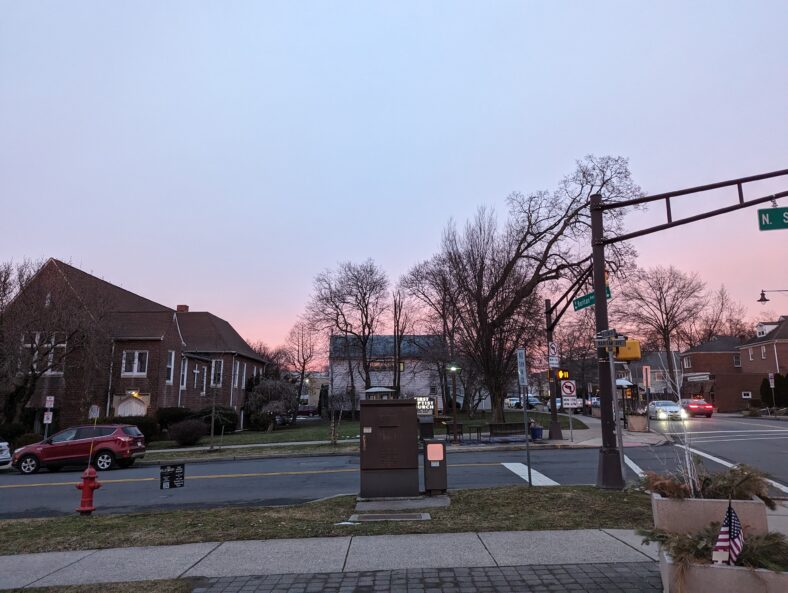“It is so easy to paper over monstrosity.”
Charles Xavier
There’s something horrific about the idea of hell.
Which is, of course, the point of it all. It’s not a particularly scary story without some horror to go alongside it.
But I think there’s something far, far, more unsettling than hell itself.
Our response.
Beneath all things
It’s not particularly new as an idea, but forgiveness goes hand in hand with nobleness. And if forgiveness is one of our highest ideals, how could we accept the concept of eternal damnation? How could we pray for others to be cast down into it?
But we do wish for it — at least for others, at least some of us do.
And isn’t that the true horror?
Hell isn’t a good place to be. Again, that’s the whole point. I can’t imagine the sort of person who wishes fire and torture onto another. At least I can’t imagine wishing it if you really stopped to think about what it meant. I’ve been cut, along my skin and inside my soul, but I’ve never known real suffering. Some people have, and then some people wished that pain upon others, a thousand fold greater — a thousand fold over.
Don’t you find that unsettling? Deeply so?
It’s not a particularly new idea, but if hell really, truly, did exist, there would be only one reasonable response. To make sure it was empty.
And this is why I don’t think I could seriously believe in some form of christianity. Though, I’m no religious scholar; and the real reason is actually rooted in epistemics and upbringing. But still — how can god be all good, and all powerful, and allow for a hell to exist? It must be that god is not all good, in which case I feel no obligation to listen. Or, god must not be all powerful, in which case what’s it going to do, send me to hell?
Round and round we go.
But we’re circling the real issue here. It wasn’t gods that devised hell — it was us. And then we pretended it wasn’t the most horrific thing we could think up.
We keep inventing ideas that are too big for our own skulls. And then we lack the wherewithal to withstand their implication. We don’t really look at what we’ve created. We ignore it, and move on.
So we write stories where people get sent to hell. We casually condemn people to it, in the comfort of our own home or within the anonymity of mass — virtual or otherwise.
And I think there’s something deeply upsetting about that. In a way my mind can’t really understand, because it’s one of those discomforts that’s just too big for our brains.
But anytime I read a book or watch a movie, especially given the popularity of fantasy now, I find it unsettling when a character knows about hell and carries about their day all the same, or even sends someone there. I find it horrifying. How could a character like that ever be a hero?
I guess I don’t think they can. Not really. And the fact authors and audiences don’t seem to agree unsettles me even more.
I have a way with words, and I live in a world of stories. And hell is just that — a story we made up. And then we turned away from the truth that fiction reflected back upon us.
Is that okay, just because it’s intuitive? Is that okay, just because it’s typical?
I have a way with words, and I live in a world of stories, and I have power beyond the means of most humans to ever live.
Do you think there are things I’ve written that I’ve then turned away from? Do you think I too am complicit in ignoring some horrific truth?
I have a way with words, but mostly I’ve been finding I lack the groundedness to make them work for me. Mostly, I think, I’ve been using them with too much distance; I’ve been too aloof.
But the devil’s in the details, and all too often we ignore those. We ignore scale, and ignoring even that, we precociously move past what those details really hold.
And I wish I knew how to stop all these people, fictitious or otherwise, from doing that.
I wish I could stop doing it myself.
Imagine if someone cast someone you loved into that. Into hell.
How horrific.
So I can’t take seriously anyone who seriously could accept such a thing. Accept hell. And every time I read a story where the characters turn away from that, or whenever I see other people — real live people — doing the same thing, a little piece of me burns away too.

What does it mean to make hell on earth?
I think we’ve probably done that a few times. We might even be doing it right now.
We made the story real.
And there’s no god to stop us, because that’s one of the stories that isn’t.
So it falls on us to fix our mistake. It falls on us to make sure it’s empty. To erase the possibility of that horror.
And I worry none of us, or at least far too few, are really capable of seeing just what we’ve unleashed on the world. Of seeing just how deeply troubling all that would be, and maybe is.
I worry we all keep turning away from the real meaning of what we’ve written onto the world. Just like all those authors and all those fantasy heroes, and all those priests — and I don’t want to be one of those.
So I hope when I come face to face with horror, even when it’s abstract and fantastical fires, I still fight back against such things.
I hope all of us will.

Leave a Reply